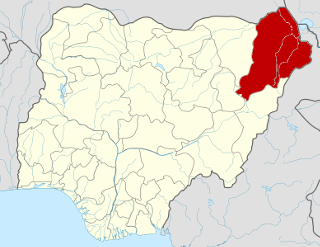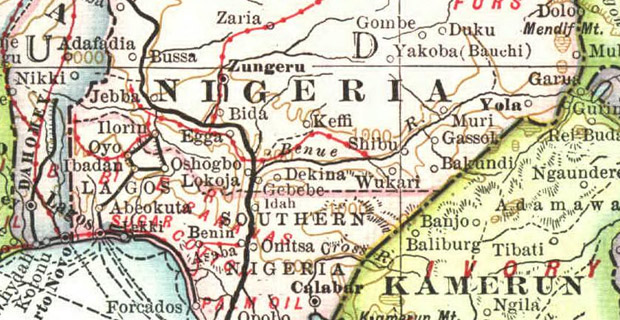| |||||||||
Sources say the army did not act, despite advance notice of Boko Haram attack that led to schoolgirls kidnap.
Last updated: 09 May 2014 18:20
| |||||||||
 | |||||||||
| The Nigerian military was given up to four hours' advance notice of the Boko Haram attack on the boarding school in Chibok from where more than 200 schoolgirls were kidnapped, according to sources independently verified by Al Jazeera and Amnesty International. Two politicians from Nigeria's northeast Borno state told Al Jazeera's Yvonne Ndege that security forces had been given at least two hours' warning of an attack on the town, but failed to act.
The schoolgirls remain missing after being abducted on April 14, more than three weeks ago. The Nigerian government's slow response to the abduction has led to protests around the country. "We received information and we spoke to a senior Nigerian military officer, who spoke to us on condition of anonymity, that they had received intelligence reports, even before local authorities and politicians got the information, that gunmen were on their way to the Chibok town," Kamara said. Kamara told Al Jazeera that senior officials in Maiduguri and Dambua towns were alerted around 7pm on April 14, and that information was relayed to the senior military officers based in Dambua and Maiduguri. "Later on, at 10pm on the same night of the 14th of April, local authorities, who Amnesty had spoken to, informed us, that they informed the local military command in Chibok town about the planned attack," Kamara said. "When I spoke to one of the senior military officials, they informed me that they [had] informed their superiors, and requested for reinforcement. But the reinforcement did not come." 17 soldiers against Boko Haram Kamara said despite the warning to assemble reinforcements, just 17 soldiers were on duty in the area when the Boko Haram fighters arrived at 11.45pm.
"This is a shocking revelation." Al Jazeera's Ndege reporting from Abuja, said the Nigerian people would be "extremely shocked and extremely disappointed" to think the Nigerian military knew in advance an attack was going to take place and most would find it "inexcusable". "It wouldn't make sense to Nigerians. It wouldn't make sense to the parents of the missing girls," our correspondent said. "The question is, why would the military deliberately choose to ignore this SOS, this cry for help from the community?" She said the Nigerian government wasn't commenting on the allegations of advance warning. "They say the operation to find these girls is something confidential. you don't give a runnning commentary to the media or the public about something as sensitve as this," she added. "They are simply not prepared to give the details of any operation to find the girls. They say it might actually harm the girls." | |||||||||
Officials estimate the death toll at 300 in town left unguarded during attempts to rescue missing schoolgirls.
Last updated: 08 May 2014 06:28
| |||||||||
 | |||||||||
A Boko Haram attack has killed hundreds in Nigeria's northeast, multiple sources have said, as police offered $300,000 for information leading to the rescue of more than 200 schoolgirls held hostage by the armed group.
The latest attack reported on Wednesday targeted the town of Gamboru Ngala on the border with Cameroon, where gunmen earlier this week razed scores of buildings and fired on civilians as they tried to flee.
Area Senator Ahmed Zanna put the death toll at 300, in an account supported by numerous residents.
Zanna said the town had been left unguarded because soldiers based there had been redeployed north towards Lake Chad in an effort to rescue more than 200 girls kidnapped by Boko Haram on April 14.
The mass abduction has sparked global outrage and offers of help from the United States, Britain, France and China.
Nigeria's response to the kidnappings has been widely criticised, including by activists and parents of the hostages who say the military's search operation has been inept so far.
President Goodluck Jonathan's administration has sought to appear more engaged with the plight of the hostages in recent days, especially after Boko Haram chief Abubakar Shekau released a video threatening to sell the girls as "slaves".
In a second kidnapping, another 11 girls aged 12 to 15 were seized on Sunday from Gwoza, an area not far from Chibok and also in Borno state, Boko Haram's base.
Boko Haram's five-year uprising has killed thousands across Africa's most populous country, with many questioning whether Nigeria has the capacity to contain the violence.
Reward for arrest of armed group
Meanwhile, police on Wednesday offered a $300,000 reward to anyone who could provide information leading to the rescue of the schoolgirls.
"The Nigeria police hereby announce a cash reward of 50m naira to anyone who volunteers credible information that will lead to the location and rescue of the female students abducted from Government Girls Secondary School, Chibok, Borno State," the police said in a statement.
The police also released six phone numbers and urged Nigerians to call.
Abubakar Shekau, a Boko Haram leader, threatened in a video to sell the girls who were taken from the secondary school in the village of Chibok "on the market".
Nigerian leaders also accepted an offer by the US to send a team to the country to help search for the missing girls.
The US team consists of "military, law enforcement, and other agencies", US President Barack Obama said in an interview with US broadcaster ABC, and will work to "identify where in fact these girls might be and provide them help".
Obama also denounced Boko Haram as "one of the worst regional or local terrorist organisations".
"This may be the event that helps to mobilise the entire international community to finally do something against this horrendous organisation that's perpetrated such a terrible crime," he said.
Anti War ....
Boko Haram Kills Over 300 in Attack on Nigeria Border TownAttack Continued for 12 Hours, Most of Town Burnt Down
by Jason Ditz, May 07, 2014
Boko Haram’s various attacks and kidnappings in northern Nigeria continue to grow today, with reports of a 12 hour-long attack on Gamboru Ngala, a border town next to neighboring Cameroon.
 Enormously violent attacks are all too common in the Borno state, but today’s attack was particularly bad, with over 300 people reported killed and virtually the entire town burned to the ground. Enormously violent attacks are all too common in the Borno state, but today’s attack was particularly bad, with over 300 people reported killed and virtually the entire town burned to the ground.
The attack began pre-dawn, with many locals still sleeping. They began with a hit on the marketplace and eventually fanned out across town, setting fires and shooting fleeing civilians in the undefended town.
Troops had been at the town earlier, during the ongoing search for hundreds of schoolgirls kidnapped by Boko Haram, but had redeployed to Lake Chad before today’s attack. It seems possible that the militants hit the town aiming to kill the troops therein, and ended up massacring civilians when they didn’t find any troops.
http://www.csmonitor.com/World/Africa/2014/0507/Unlike-Boko-Haram-s-many-massacres-girls-kidnapping-brings-it-home-video
Unlike Boko Haram's many massacres, girls' kidnapping brings it home (+video)
| |||||||||
Commentary on the economic , geopolitical and simply fascinating things going on. Served occasionally with a side of snark.
Thursday, May 8, 2014
Bring Back Our Girls Updates May 8 -9 , 2014 --Lof of egg on faces today ( Hillary Clinton and Nigeria Government / Military regarding Boko Haram ) ........ Boko Haram ups ante in Nigeria -- A Boko Haram attack has killed hundreds in Nigeria's northeast, multiple sources have said, as police offered $300,000 for information leading to the rescue of more than 200 schoolgirls held hostage by the armed group ..... This maasacre occurred after a second kidnapping of another 11 girls ( and rubbing salt into the wounds , the massacre hit a village left unguarded by soldiers looking for the missing girls originally kidnapped. )
Subscribe to:
Post Comments (Atom)













No comments:
Post a Comment